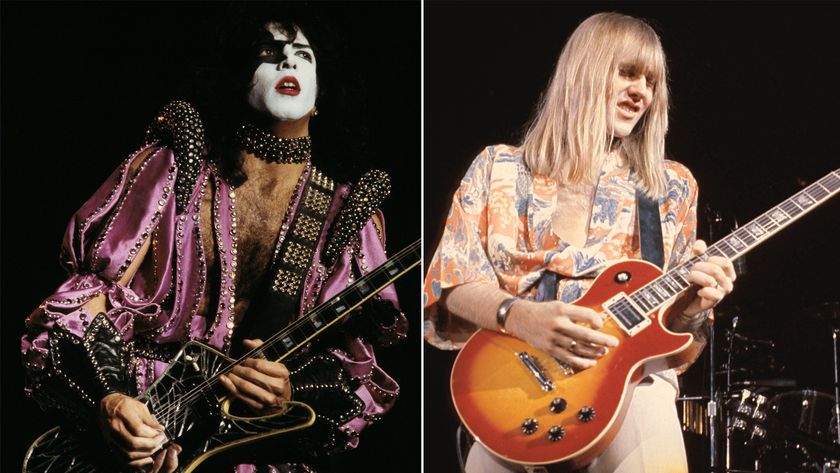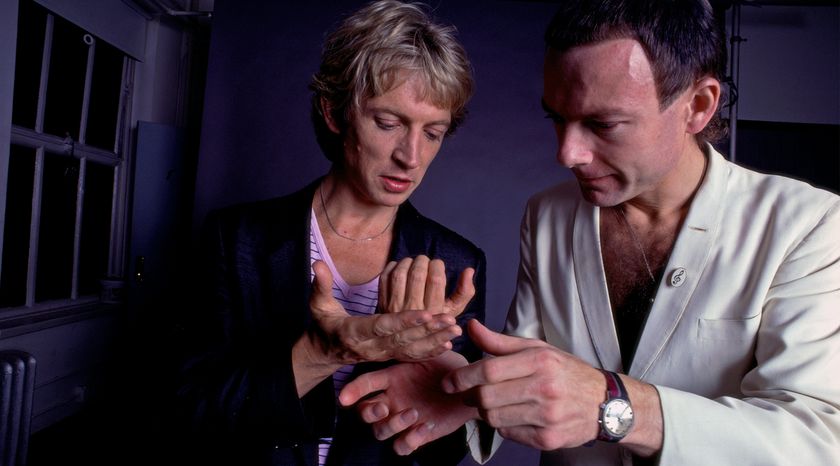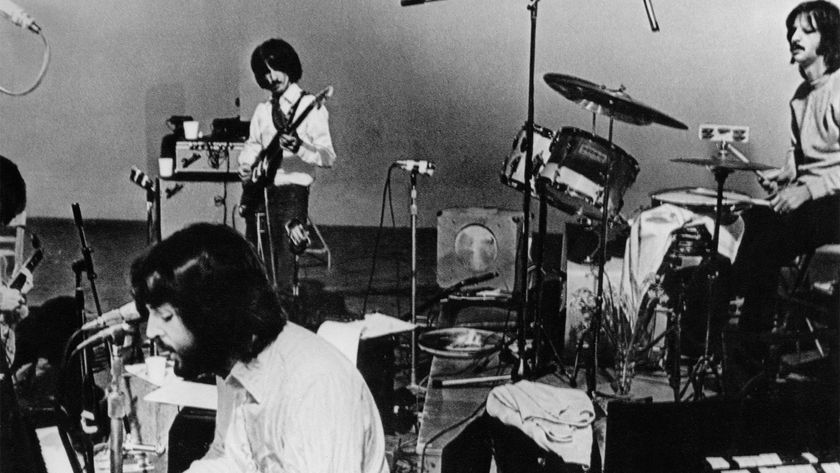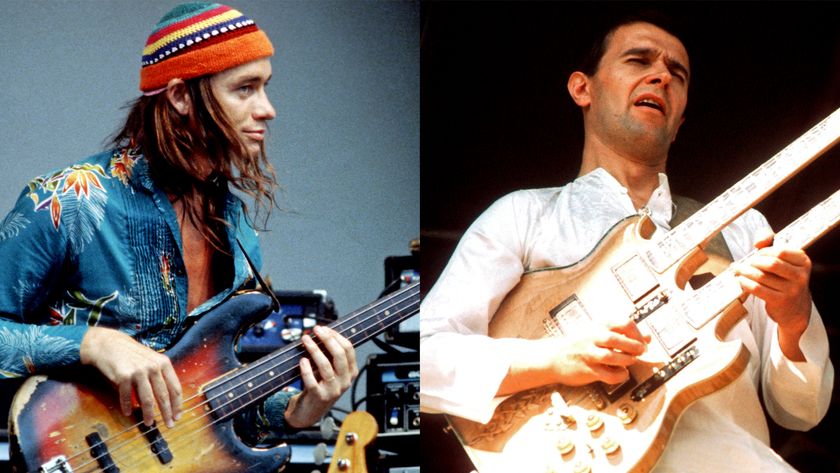“There are these strange coincidences. It’s kind of amazing.” David Gilmour weighs in on the longtime conspiracy theory that links Pink Floyd's 'Dark Side of the Moon' to 'The Wizard of Oz'
Promoting his new album, the guitarist made a surprising revelation about the connection between the iconic album and classic movie

In case you've been living under a rock—or on The Dark Side of the Moon, for that matter—David Gilmour's brand-new studio album Luck and Strange dropped last month, and the Pink Floyd legend has been doing his fair share of interviews and appearances to promote it.
While in New York City for a run of shows at Madison Square Garden to close out the 2024 tour, Gilmour stopped by The Tonight Show Starring Jimmy Fallon for a performance and a rare chat that brought up some unusual topics.
During the show, Gilmour found himself reflecting on one of music's most enduring conspiracy theories: the unusual synchronicity between Pink Floyd's seminal album The Dark Side of the Moon and the 1939 film classic The Wizard of Oz.
As some Pink Floyd fans discovered in the mid 1980s — coincident with the VHS home rental boom — if you start The Dark Side of the Moon at the third roar of the MGM lion, the album aligns eerily well with scenes in the movie. Some examples include “Time” playing during a sequence involving clocks; the “Brain Damage” lyric "The lunatic is on the grass," coinciding with the Scarecrow's whimsical dancing (he has no brain, of course); and the album’s overarching themes of time, conflict, and mental illness mirroring the film's storyline.
When asked about the theory during the interview, Gilmour acknowledged to Fallon, tongue in cheek, "There are these strange coincidences. I'll call them coincidences."
Conspiracy theories in music are nothing new. They range from hidden messages in Led Zeppelin's "Stairway to Heaven," Queen's "Another One Bites the Dust" and numerous Ozzy Osbourne tracks to claims that Paul McCartney died in the mid 1960s and was replaced in the Beatles by a doppelgänger. As far-fetched as some of these may be, the coincidences between Dark Side and The Wizard of Oz are a little too on the nose to ignore.
But if the matter is entirely unintentional, what could be the explanation for it? This type of phenomenon is often attributed to apophenia, the human tendency to find meaningful patterns in unrelated things. Pink Floyd's mystique during the pre-internet era — undoubtedly combined with some fans’ recreational drug use — no doubt made any correlations between the two more obvious.
Get The Pick Newsletter
All the latest guitar news, interviews, lessons, reviews, deals and more, direct to your inbox!
Although Floyd has never officially acknowledged any intentional influence, and drummer Nick Mason once dismissed the theory as "absolute nonsense," Gilmour told Fallon he has seen some of the synchronicities. "People have done the donkey work, the chore work, and added it on YouTube. You can watch bits of it. It's kind of amazing," he said with a grin.
Gilmour's take on the "connection" came out during a Fallon segment that also included a playful "True or False" game, with Gilmour addressing some of the myths surrounding his life. From his modest modeling days to a famous picture of him and Paul McCartney with "a great big joint in my hand," the 78-year-old legend admits it scuppered his chances of warding his kids off smoking.
Later on in the show, Gilmour joined Fallon's house band, the Roots, for a rendition of his single, “Dark and Velvet Nights.”
Whether you believe the Dark Side of the Moon/Wizard of Oz connection is deliberate or just a case of apophenia, like every other conspiracy theory, it will probably live on forever. As Gilmour puts it, someone on YouTube has done the "donkey work," so you can check it out yourself and decide.


The Editor in chief of Guitar Interactive since 2017, Jonathan has written online articles for Guitar World, Guitar Player and Guitar Aficionado over the last decade. He has interviewed hundreds of music's finest, including Slash, Joe Satriani, Kirk Hammett and Steve Vai, to name a few. Jonathan's not a bad player either, occasionally doing gear reviews, session work and online lessons for Lick Library.

"Old-school guitar players can play beautiful solos. But sometimes they’re not so innovative with the actual sound.” Steven Wilson redefines the modern guitar solo on 'The Overview' by putting tone first

“I played it for Paul Stanley when we were touring with Kiss. He had a look on his face, like 'What the hell is this!?’” Alex Lifeson tells how Rush’s early failure pushed them for their breakthrough success, 2112









